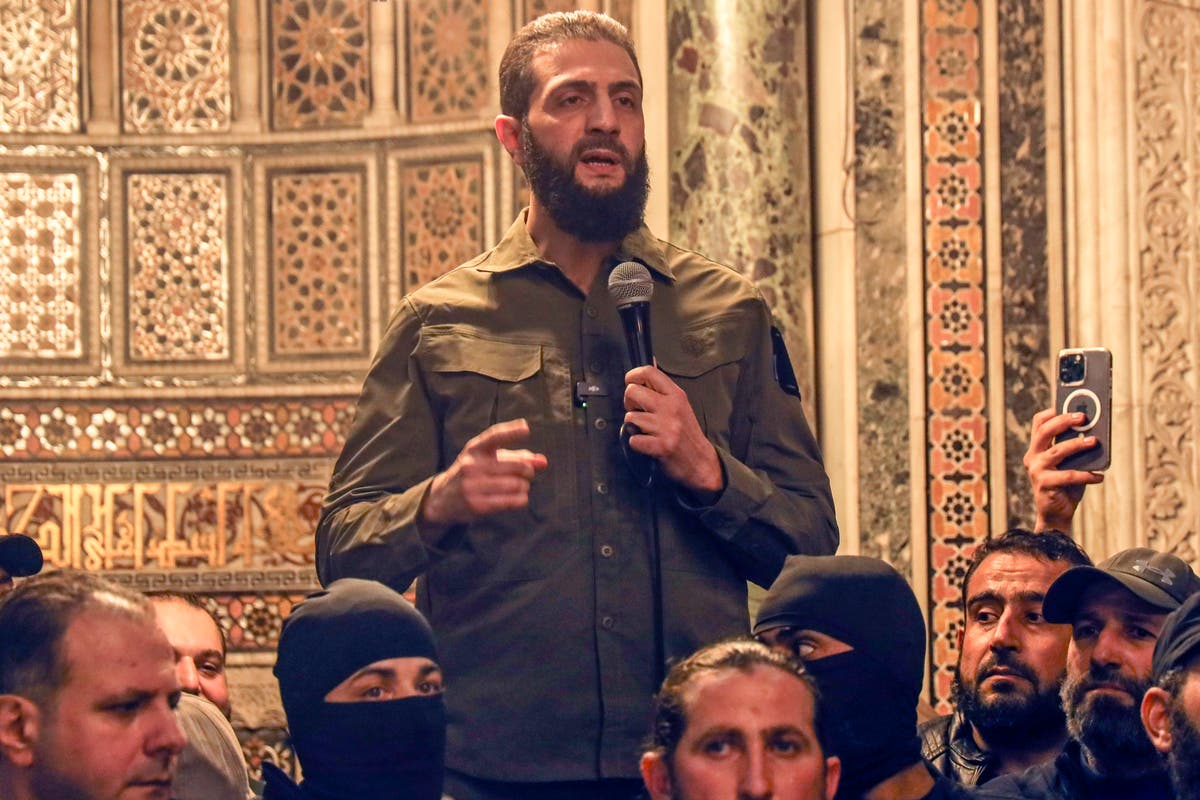Syria‘s de facto new leader said the embattled country was not a threat to its neighbours or the West following the ouster of president Bashar al-Assad.
Abu Mohammed al-Golani, the leader of Hay’at Tahrir al-Sham, a rebranded Al Qaeda affiliate which led the rebellion against the Assad regime, told the BBC that Syria was exhausted by war and urged the West to withdraw the sanctions crippling the nation’s economy.
A political vacuum emerged in Syria after rebel militias overthrew Mr Assad earlier this month and forced him to seek asylum in Russia, ending five decades of his family’s rule.
The collapse came after 13 years of a brutal civil war that left thousands of people dead and vast swathes of the country in ruins.
After taking Damascus, Hay’at Tahrir al-Sham set up an interim administration comprising members of its “salvation government”, which ruled its former strongholds in the north, to run the country until March next year.
“Now, after all that has happened, sanctions must be lifted because they were targeted at the old regime,” Mr Golani told the BBC from Damascus. “The victim and the oppressor should not be treated in the same way.”
He also urged countries such as the UK and the US to drop his group from their lists of terrorist organisations.
The group has sought to distance itself from its extremist roots to secure international legitimacy after toppling Mr Assad, but it remains on Western terror organisation lists. Al-Golani, once a lieutenant of slain Isis chief Abu Bakr al-Baghdadi, still carries an American bounty of $10m on his head.
Mr Golani’s statement to the BBC coincided with UN optimism about Syria’s new government. “I think it is important to say that there is a lot of hope that we can now see the beginning of a new Syria,” Geir O Pedersen, the UN special envoy for Syria, told the media in Damascus.
He hoped it would adopt a new constitution allowing for inclusive government and there would be “free and fair elections when that time comes”.
Mr Pedersen noted that while there was “stability” in the capital, ”challenges” remained elsewhere, particularly in the northeast, where Kurdish militias backed by the US have fought with forces backed by Turkey.
Both America and Turkey occupy territory in Syria, as does Israel, which invaded and expanded its occupation beyond the Golan Heights after Mr Assad fell, and carried out a devastating bombing campaign targeting hundreds of military and research assets across the country.
France said on Wednesday it would host an international meeting on Syria in January and declared that the lifting of Western sanctions and reconstruction aid would be conditional on clear political and security commitments by the transitional regime.
A delegation of French diplomats met an official from the new Syrian regime in Damascus and raised the flag over the French embassy there 12 years after cutting ties with Mr Assad. “We will not judge them by their words but by their actions and over time,” acting foreign minister Jan-Noel Barrot told the French parliament.

